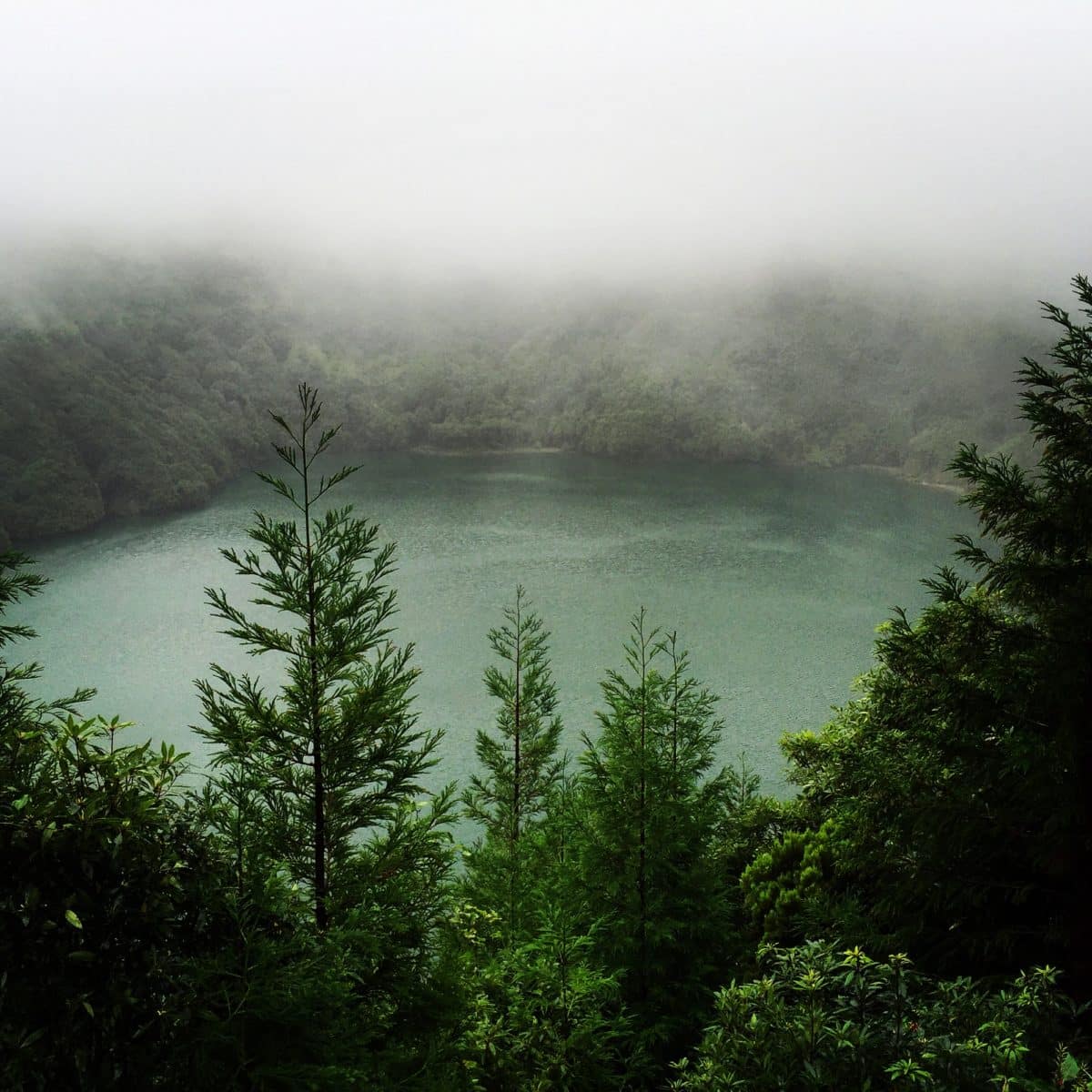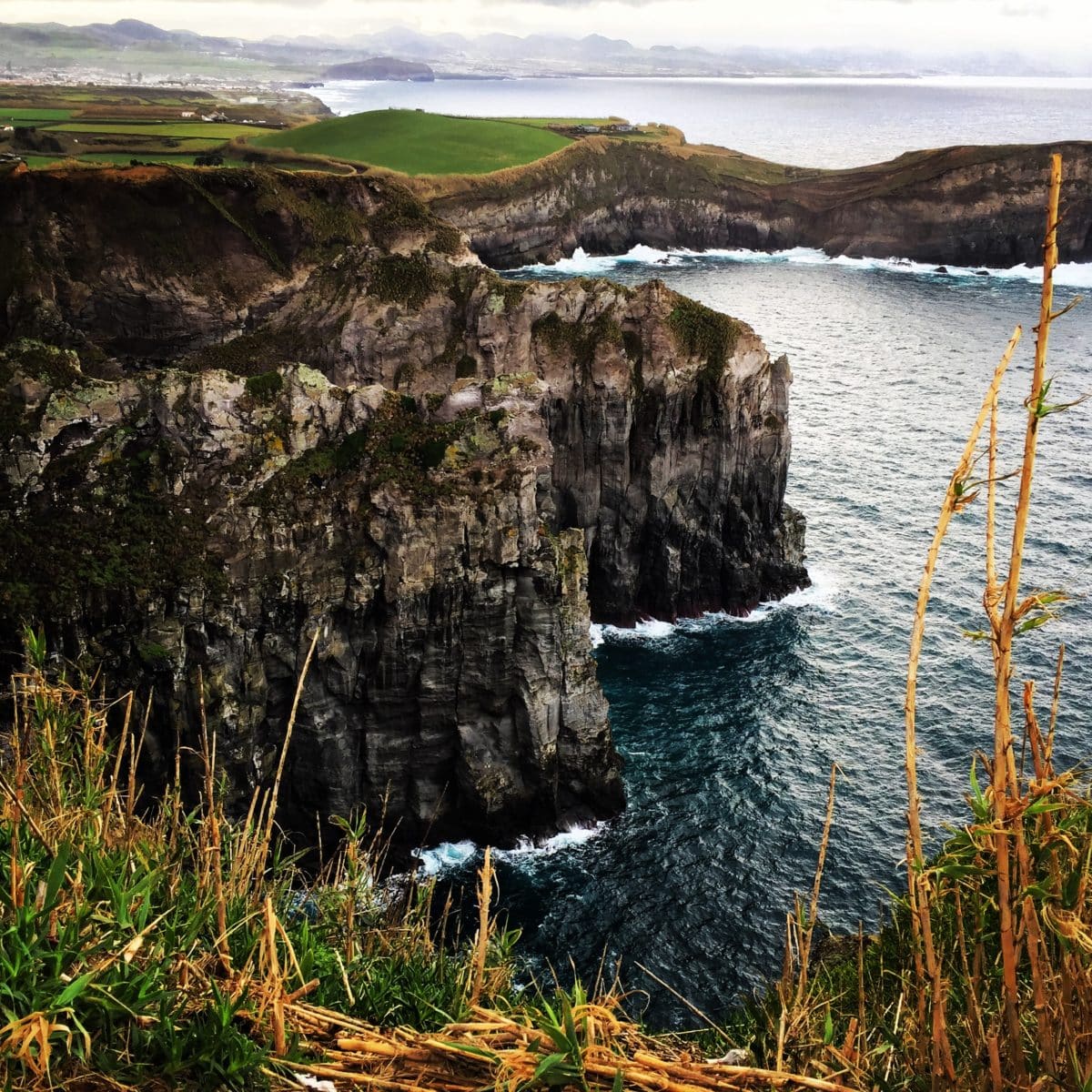
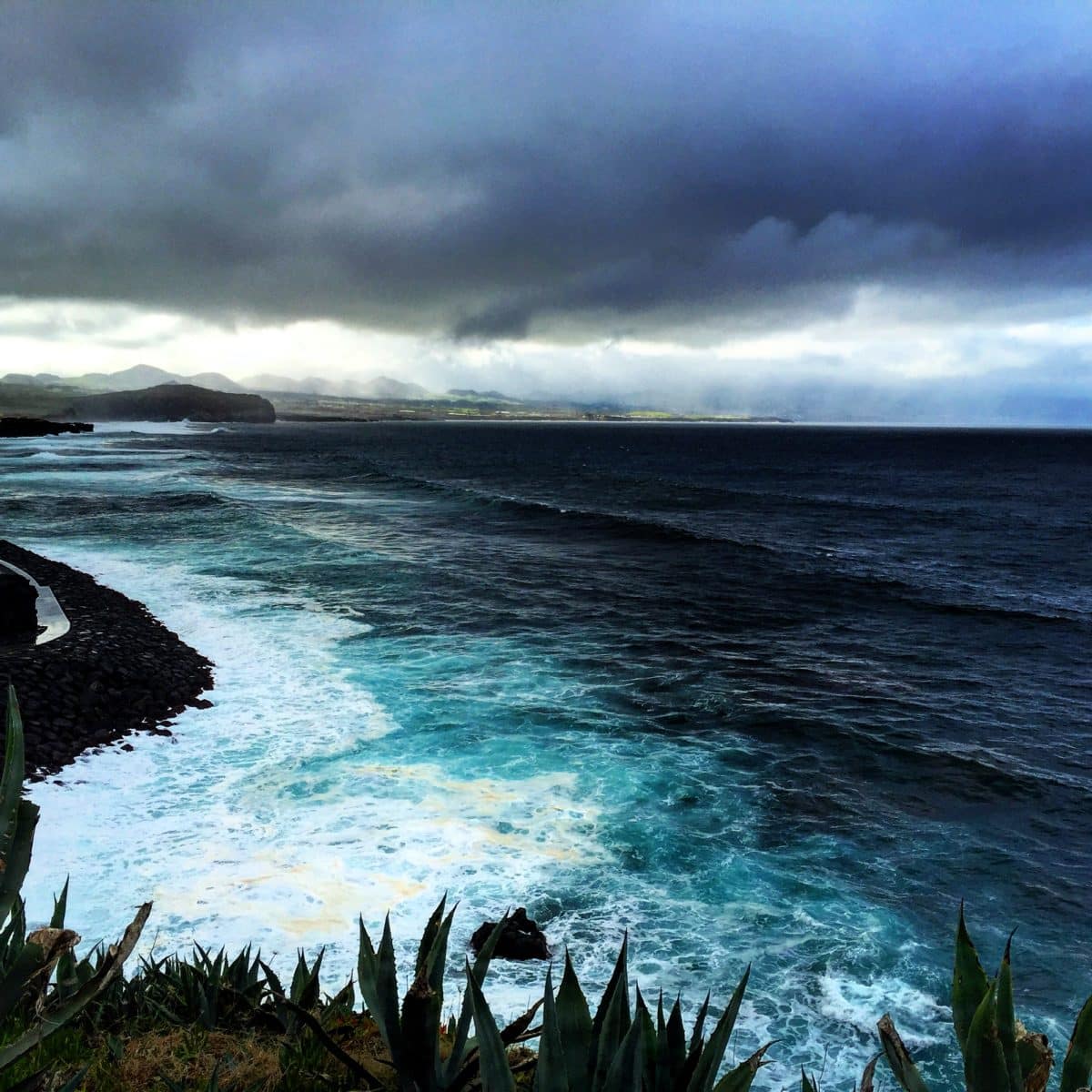
It is a simple, boiled potato that leads me to the realization that the Azores will likely be one of Europe’s next big food destinations.
I’m in Angra do Heroísmo, a small city on the island of Terceira. Referred to simply as Angra, this peaceful coastal enclave is a UNESCO World Heritage site. The streets are cobbled with narrow sidewalks, and those leading to the sea are arrow-straight. From almost anywhere in the town you can see the sheltered bay. It’s idyllic, peaceful, protected. It’s easy to see why people settled here.
It’s only a few hours after my arrival in Angra that my guide, Paulo, leads me down sun-splashed streets to a seaside hotel with a well-regarded restaurant. Sitting on their patio overlooking the glittering waves I’m unsure of what I should order and leave myself in Paulo’s hands. Soon after I find myself looking at two generously sized swordfish steaks, a few tourneéd potatoes, and a simple green salad. “Great,” I think. “A large portion of one of my least favorite fish.”
The swordfish is grilled, with olive oil and salt. The potatoes are boiled with salt. The green salad is a green salad. It’s simple cooking, the kind of thing you’d eat in the late spring or early summer. Easy. Low thrills.
It helps, then, that it is the best swordfish I’ve ever had. Light yet meaty, it makes up for every bad piece of swordfish that has ever crossed my plate – a corrective emotional experience for a man traumatized by childhood memories of overcooked fish.
Even more amazing, though, are the potatoes. Every boiled potato I’ve ever consumed pales in comparison to this boiled potato. The only comparable experience in my lifetime is from an evening spent at a Kaiseki restaurant in Tokyo, where ultra-traditional foods are served in a formal setting. There, a small purple yam, boiled and served with only the lightest touch of salt, provided a glimpse into the joy that simply prepared food can provide.
This, at its heart, seems to be the defining characteristic of the cuisine of the Azores. While whole food evangelists like food writer Michael Pollen and chef Dan Barber spread the word of farm-to-table as an ideology, what they’re really trying to convey is that fresh, minimally processed, simply cooked foods are healthier and taste better. It’s something America, with its deep physical dependence on sugar and lack of education about nutrition, is struggling to adopt. In the Azores no philosophy is needed to get people to eat this way – it’s just how things tend to be done.
The reasons for this seem to be tied to both preference and history. Located roughly 800 miles off of the coast of Portugal, the volcanic archipelago known as the Azores is off the beaten path for most travelers. While surfers and trans-Atlantic yachts have used the islands as a place to relax and refuel for decades, most people seem only vaguely aware that the nine islands of the Azores even exist. This is poised to change though. Low-cost flights from continental Europe, and a direct flight from the U.S. that departs from Boston, have made the Azores suddenly accessible.
The cuisine of the Azores seems tied to its isolation, though. Later in my trip, on the island of São Miguel, I am led by a different guide named Eduardo. An Azorean native who has spent decades working in the tourism industry for both private companies and the Portuguese government, he proudly lists the many ways that Portuguese fishermen, sailors, and merchants have impacted the world through exploration and trade. He points to the influence that Portuguese language has had on other cultures (such as in Japan), and the fact that Portugal established one of the first worldwide seafaring empires.
The lack of infrastructure has also had its impact on Azorean cuisine. The islands of the Azores are temperate, humid, and perpetually evergreen. While this climate makes fishing possible year-round, it also makes it difficult, if not downright impossible, to air-dry fish and meat. While food could be preserved by storing it in fat (which Eduardo says his mother used to do with seaweed), if food weren’t fresh it likely wouldn’t be safe to eat. When viewed through this lens it’s easy to see that a preference for freshness is not just a matter of taste, but one of survival.
It’s only during the latter half of my time in the Azores that I realize just how important freshness is to the islanders.
Eduardo has brought me to a restaurant that overlooks the sweeping Northern coastline of the island of São Miguel. Despite its remarkable view and close proximity to the ocean, the restaurant is almost empty and the mood is somber. Eduardo tells me that this is because today’s mild storm has emptied the nearby beach, a favorite of surfers, and that people are sleeping off a night of partying. In a long dining room lit by a slate grey sky, we order wreckfish in seafood sauce.
The food, which looks nice, is disappointing. Wreckfish, a large deep-water fish that lives in caves and the wrecks of ships (hence the name), is fine, but not great. The seafood sauce has scallops and small clams. I ask Eduardo if the clams are local and he says no, they’re not. That in itself is a sign that things are amiss.
That night, at dinner, we discuss our lunch. “The fish was frozen,” says Eduardo. “That’s why it wasn’t as good.” Our driver, who speaks virtually no English and whose name I never learn (to my lasting shame), nods his head.
For most Americans it’s not uncommon for your fish to be frozen before you have a chance to eat it. To my guides, it’s not just unusual, it’s almost a travesty. Our meal wasn’t a particularly good one, but the issue wasn’t one of inattentiveness in the kitchen, or of the skill of the cook, or the cohesiveness of the kitchen brigade. The issue is that the product itself was frozen. It wasn’t fresh, and so it wasn’t as good. The fact that the scallops and clams were being served was a sign that things weren’t fresh as well, as the scallops had clearly been frozen before cooking, and because clams aren’t even indigenous to the island’s waters. On the Azores the “catch of the day” is not a special promotion.
Unknown content block type: FlexiblePageTemplateFlexibleContentPhotoFullWidthLayout
{
"__typename": "FlexiblePageTemplateFlexibleContentPhotoFullWidthLayout"
}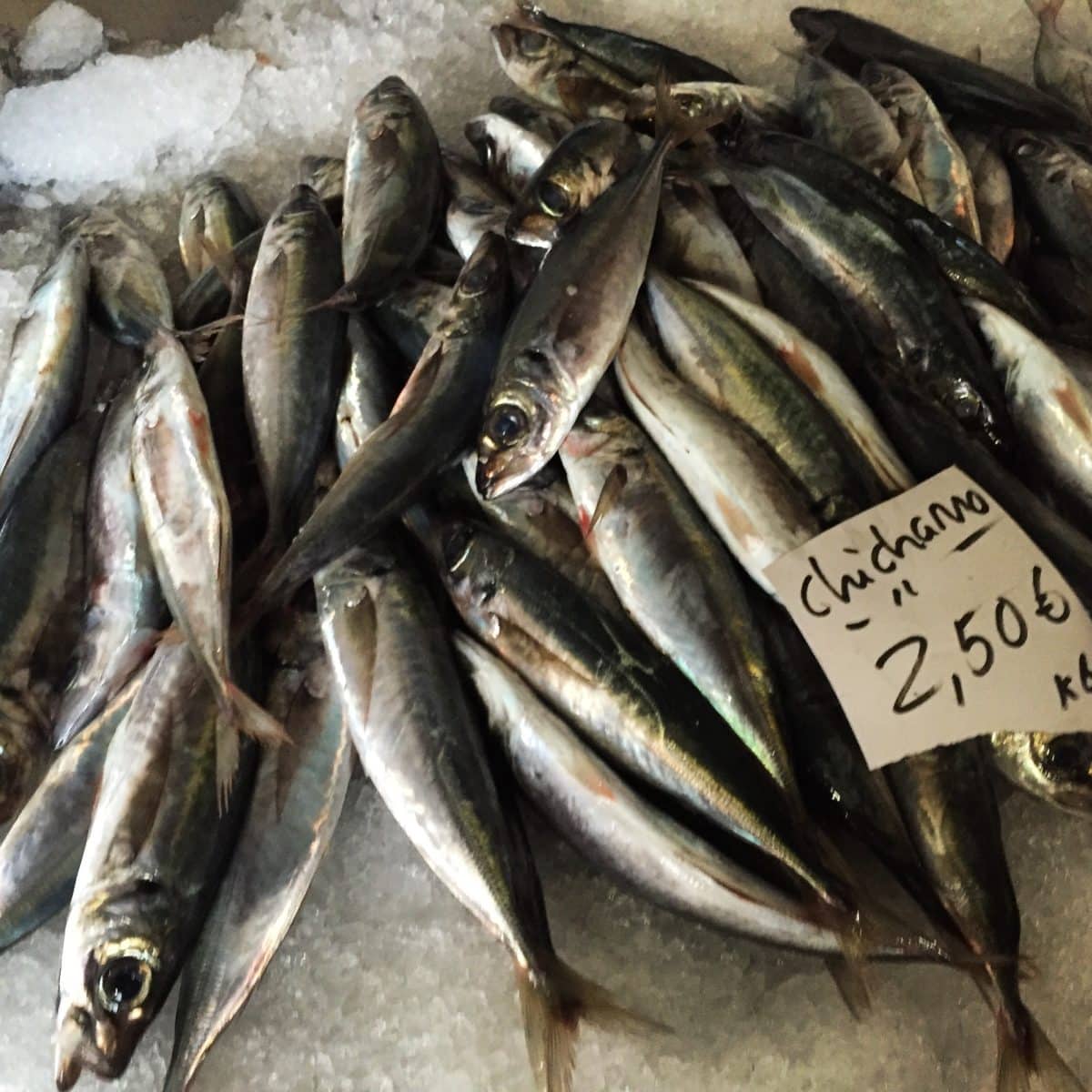

If your fish wasn’t purchased that morning from the local fish market it’s probably something you’re going to want to avoid.
The dedication to freshness extends beyond fish as well. Quinta dos Açores, an Azorean chain of stores that has in-house commissaries popular with young people, is known for its beef. Azorean beef is of very high quality. The animals spend their entire lives outdoors, on lush green cliff side pastures, and are certified using a rigorous process which tracks both lineage and environmental qualities.
Quinta dos Açores has distinguished itself by being vertically integrated. This means that the chain doesn’t just sell beef, but also raises and processes it, cutting out middle men who might have an impact on quality. During a private tour the chain’s owner, Francisco Helvidio Barcelos, tells me that a large part of his business involves overseeing the actual raising of the beef. In the grand tradition of entrepreneurship, Mr. Barcelos wears many hats, including shop owner, butcher, rancher, and farmer. At one of his prime locations, located on the island of Terceira, he leads me down a hallway where customers can view the beef being butchered and packaged. The rooms are spotless, cleaner than any American butcher shop I’ve ever been in. The beef is clean, fresh, and air-dried in an immaculate environment.
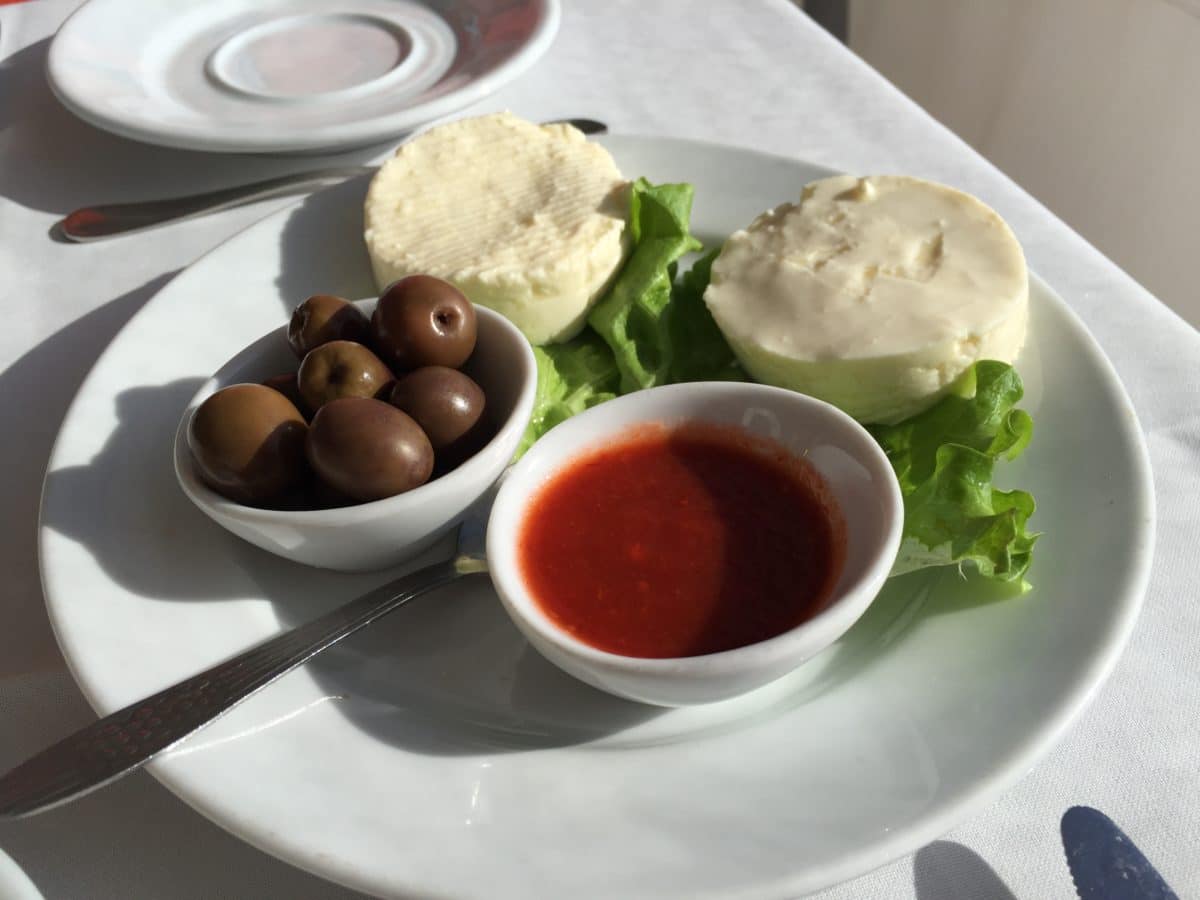
What travelers will discover upon their arrival on the islands is a cuisine marked both by simplicity and freshness. Fish is likely to be on every menu, and it will probably be grilled. Beef is Azorean, raised and then butchered on the islands, and cooked simply. Cheese is almost guaranteed to make an appearance. Semi-hard, salty cheese will likely be from the island of São Jorge. Soft, white, farmhouse cheese will be local, its mild milky flavor cut by a ubiquitous bright red pepper sauce which is simultaneously salty and fiery.
What travelers will discover upon their arrival on the islands is a cuisine marked both by simplicity and freshness. Fish is likely to be on every menu, and it will probably be grilled. Beef is Azorean, raised and then butchered on the islands, and cooked simply. Cheese is almost guaranteed to make an appearance. Semi-hard, salty cheese will likely be from the island of São Jorge. Soft, white, farmhouse cheese will be local, its mild milky flavor cut by a ubiquitous bright red pepper sauce which is simultaneously salty and fiery.
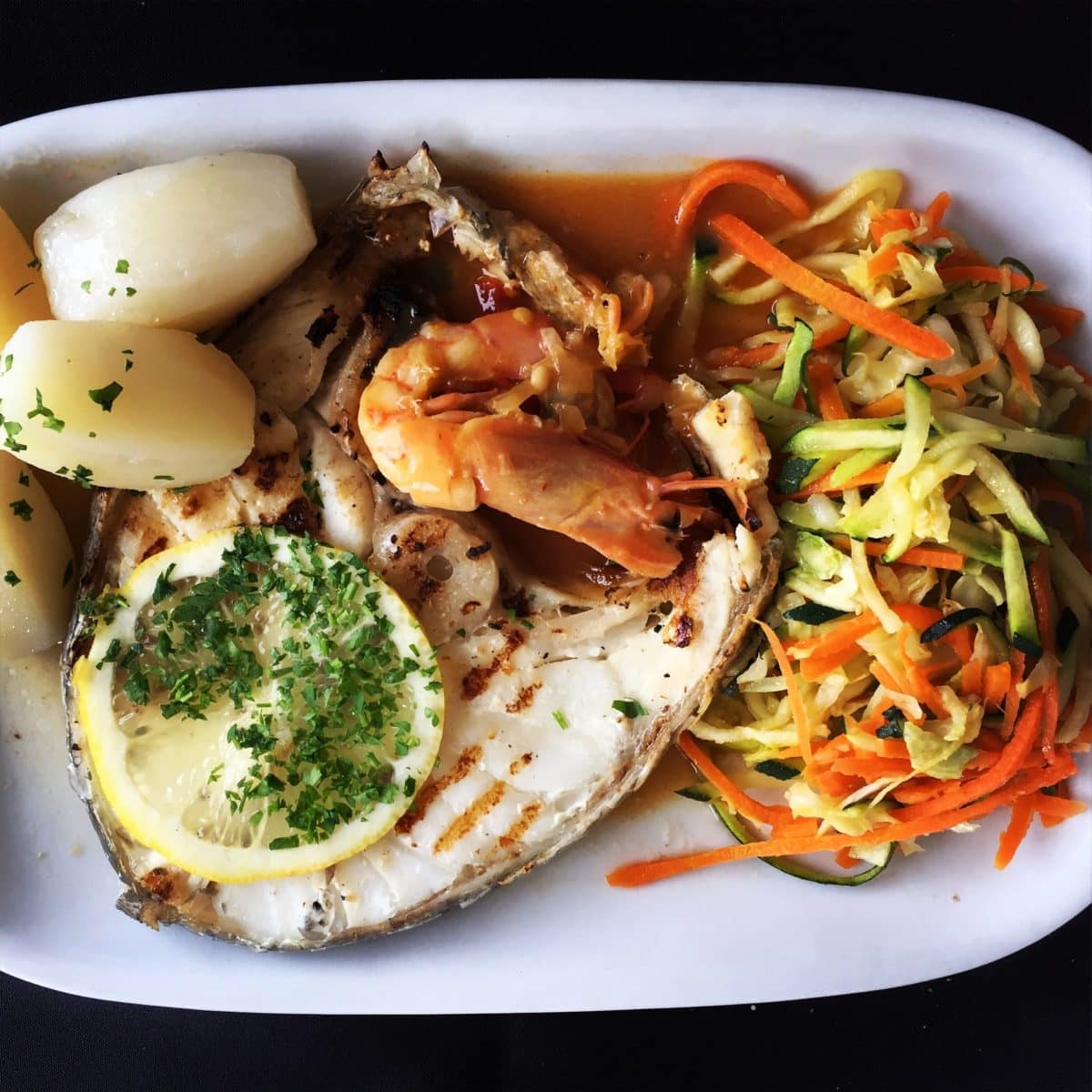

Stews are an option, depending on your mood, and they’ll be intense but simple. Beef, sausage, cabbage, and potatoes. Octopus stewed with wine.
On the Azores, the food is so good it doesn’t need to have much done to it. This is what will shine for visitors, and what will attract attention. Good, clean food, prepared well. ![]()
